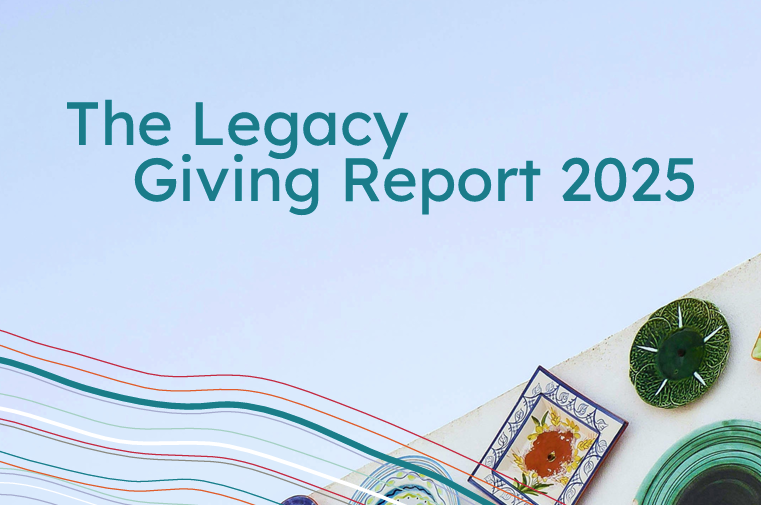The value of gifts left to charities in wills hit a record £4.5bn last year, a report has found.
This was driven by HM Court and Tribunal Service (HMCTS) successfully clearing a backlog of estates waiting for probate, according to the report by Legacy Futures and Smee & Ford.
They say that HMCTS clearing the backlog was “the biggest contributing factor” to legacy growth last year.
This was particularly needed as there was a drop in the death rate, from 648,000 in 2024 compared to 660,00 the previous year.
In addition, “muted” house price growth of just 1.3% hindered the value of estates.
The report points out that the £4.5bn in legacy income represents a 9% increase on the previous year and is the largest annual total to date.
Legacy income is forecast to reach £5.1bn within five years and £10.2bn by 2050.
Despite fewer deaths the number of bequests rose by 15% in 2024, indicating more people are considering leaving gifts to good causes.
While two in five wills name one charity, more than one in four named more than three, and around one in five name two.
The health sector has the largest share of legacy gifting, accounting for almost two in five of all income.
“Just eight charities account for half of this, including Cancer Research UK, Macmillan, British Heart Foundation, Marie Curie and Alzheimer’s Society,” found the report.
People in the South West and South Coast areas of England are more likely to leave a gift in their will to charity compared to people in Wales, the North of England and the Midlands.
Baby boomers, born between 1946 and 1964, account for a fifth of all bequests and are “set to become dominant” in legacy giving by 2035 over those born prior to the end of the Second World War.
“Legacies play a pivotal role in supporting charities, of every shape and size, across the UK to continue their vital work,” said Chartered Institute of Fundraising executive director of membership and operations Rob Cope.
Legacy Futures and Smee & Ford executive director Ashley Rowthorn added: “Legacy income is a long-term, resilient source of support for the sector, and having access to clear, evidence-based insights is vital for organisations looking to grow or sustain this important form of giving.”
Latest News
-
Civil Society Covenant blighted by delays and U-turns, report warns
-
More than 30 jobs at risk as hospice charity looks to close home care service
-
Cranfield Trust: A guide for charity leaders on navigating local authority devolution
-
Friday funding roundup - 20 February
-
Former youth charity chief to lead corporate social responsibility organisation
-
Christian charity’s failed bid to buy a new church breached fundraising code
Charity Times video Q&A: In conversation with Hilda Hayo, CEO of Dementia UK
Charity Times editor, Lauren Weymouth, is joined by Dementia UK CEO, Hilda Hayo to discuss why the charity receives such high workplace satisfaction results, what a positive working culture looks like and the importance of lived experience among staff. The pair talk about challenges facing the charity, the impact felt by the pandemic and how it's striving to overcome obstacles and continue to be a highly impactful organisation for anybody affected by dementia.
Charity Times Awards 2023
Mitigating risk and reducing claims

The cost-of-living crisis is impacting charities in a number of ways, including the risks they take. Endsleigh Insurance’s* senior risk management consultant Scott Crichton joins Charity Times to discuss the ramifications of prioritising certain types of risk over others, the financial implications risk can have if not managed properly, and tips for charities to help manage those risks.
* Coming soon… Howden, the new name for Endsleigh.
* Coming soon… Howden, the new name for Endsleigh.
Better Society

© 2021 Perspective Publishing Privacy & Cookies














Recent Stories